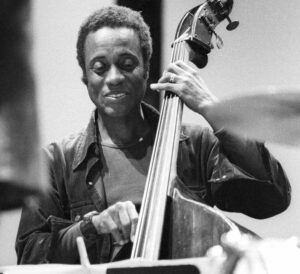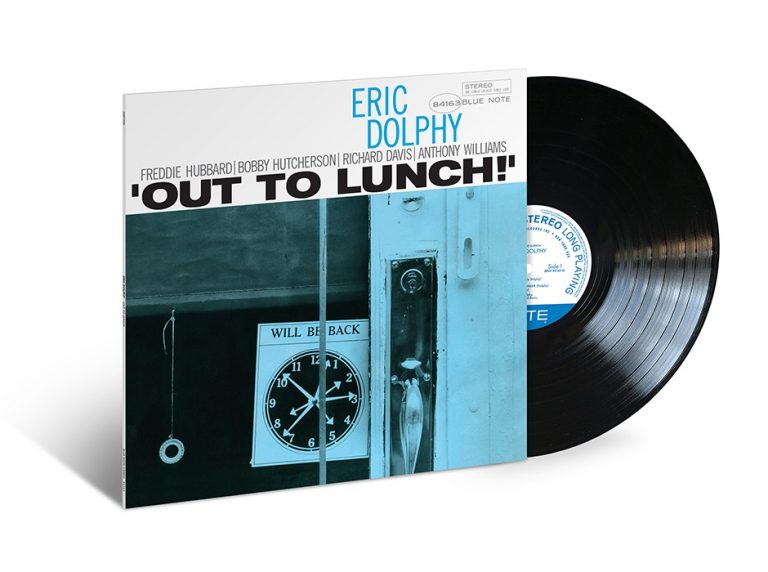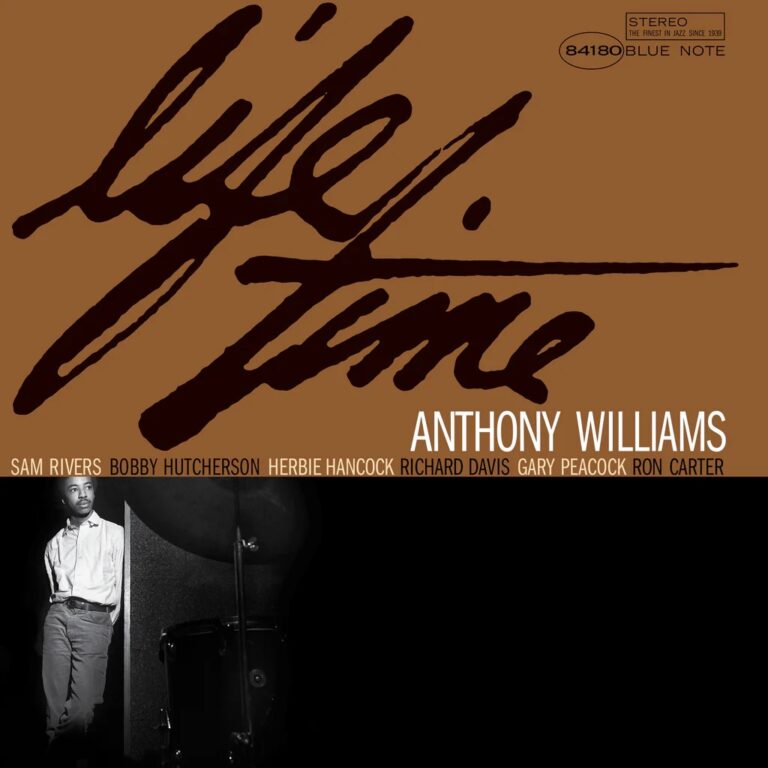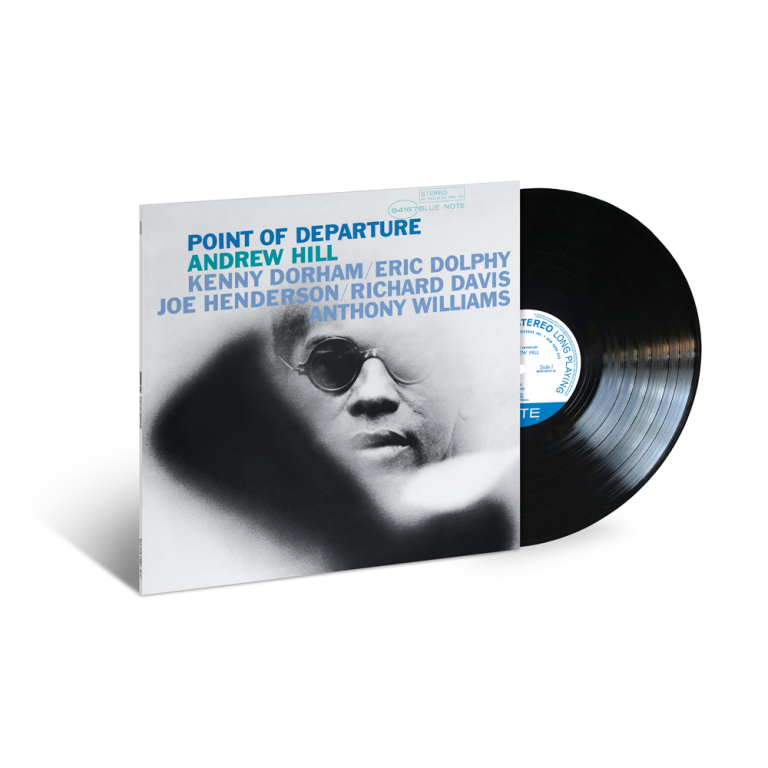“Richard Davis was a natural enabler who was uninterested in drawing attention to himself,” wrote John Fordham in his obituary of this most versatile of bass players who passed away in September 2023 at the age of 93. As he went on to write: “‘Astral Weeks’ was a classic example of that reality, since Van Morrison had issued the session musicians on the album with few directions, and it was Davis who led his jazz colleagues in figuring out most of the band parts on the fly.”
While he is inevitably best known for his playing on Van Morrison’s landmark album from 1968 as well as sessions for Laura Nyro and Bruce Springsteen, Richard Davis was a similarly important yet unassuming presence on some of Blue Note’s most celebrated albums of the mid 1960s. The most notable of these were the trio of albums recorded at Van Gelder Studios in 1964, Eric Dolphy’s “Out To Lunch!”, Andrew Hill’s “Point of Departure”, and Anthony Williams’ debut “Life Time”.
It was producer Lewis Merenstein who brought in Richard Davis alongside guitarist Jay Berliner, drummer Connie Kay and percussionist Warren Smith Jr. for what would become Van Morrison’s Celtic folk jazz masterpiece of 1968.
“Richard was the soul of the album…the heart and beat of it, which I knew he would be,” Merenstein told writer Hank Shteamer in a rare interview in 2008. “Whenever I had an important session, I’d call Richard…And when the other musicians would come in and see Richard, they knew they had to come up to top form.”
Growing up in Chicago, Davis only picked up the bass when he was 15 at DuSable High School “The bass was always in the background, and I was a shy kid…So I thought maybe I’d like to be in the background.” he told Allegro digital magazine in 2013. He was taught by Walter Dyett, the school’s famously strict music director whose insistence that Davis study classical bass as well as jazz gave him the versatility he became known for. This duality would be furthered when he took lessons with Chicago Symphony Orchestra bassist Rudolph Fahsbender.
More learning came in the early ‘50s when he played with bandleader Sonny Blount, better known as Sun Ra, before joining pianist Ahmad Jamal’s trio. It was with another trio of pianist Don Shirley that Davis made the move to New York where he got his big break in the band of Sarah Vaughan in 1957.
But it was in that tumultuous year for jazz in 1964 that Davis’s post- bop sensibilities and versatility on the upright bass found its voice on those trio of albums for Blue Note. “We were resisting being imprisoned by chord changes, trying to free ourselves from the restrictions of scales and rhythms,” he later recalled. “Some people call this free music. Some of us called it our music. Unrestricted, indefinable, and free.”
Eric Dolphy – “Out To Lunch!”
“Richard doesn’t play the usual bass lines. He plays rhythm with his lines. He leads you somewhere else,” Eric Dolphy wrote in the liner notes of “Out to Lunch!”. After meeting Dolphy by chance on the subway, Davis had first appeared alongside him at the Five Spot, New York, during his residency there in 1961, a session recorded by Rudy Van Gelder for Prestige. It was the beginning of an intuitive partnership that culminated in “Out to Lunch!”.
The legendary session was recorded at Van Gelder Studios on February 25, 1964, with the equally exploratory Freddie Hubbard on trumpet, Bobby Hutcherson on vibraphone, and Tony Williams on drums. As EJ’s Stephan Kunze wrote of this groundbreaking album from 1964: “This record encapsulates everything that’s exciting about jazz – the revolutionary spirit of freedom within a structural framework steeped in blues tradition.” Pertaining to the liberation that came both from the individual playing and the communal musical unity, Dolphy wrote in the original liner notes: “Everyone’s a leader in this session”.
Anthony Williams – “Life Time”
One of those leaders Dolphy had discovered was a young drummer by the name of Anthony [Tony] Williams who recorded this debut for Blue Note, featuring the bass of Richard Davis, when he was just 18 years old. Something of a child prodigy who took up the drums at the age of 8, Williams was hired by Jackie McLean for his first Blue Note session when he was just 16. A year later he was taken into Miles Davis Quintet, leading to a series of Blue Note sessions including Herbie Hancock’s “Empyrean Isles” and Andrew Hill’s “Point Of Departure”.
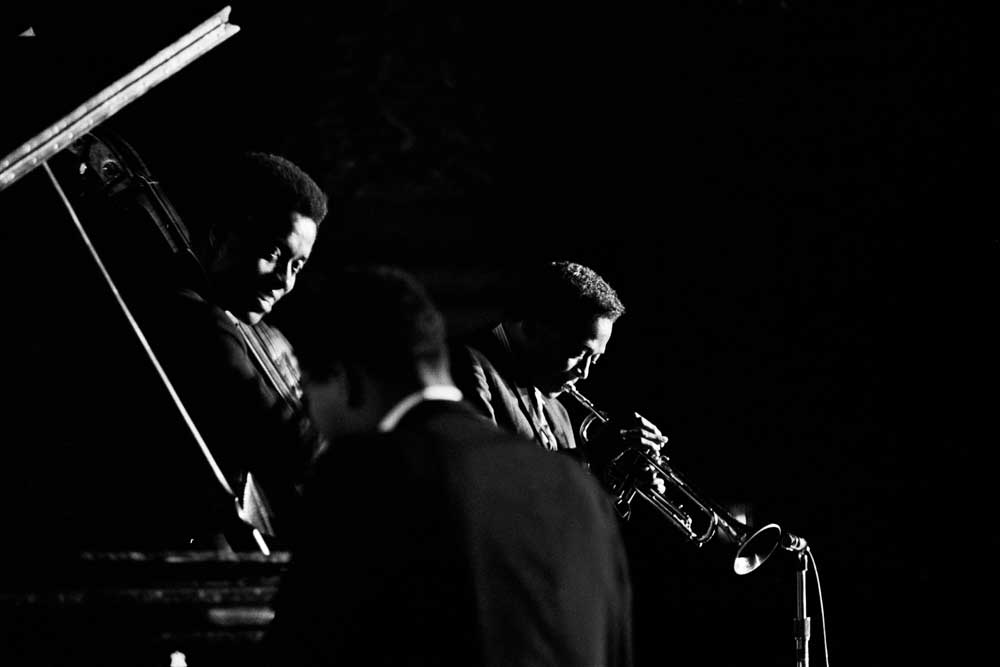
While their first appearance together was on “Out to Lunch, the partnership peaked on “Life Time”. One of three bassists who were in the studio on that August day in 1964 (the others being Ron Carter and Gary Peacock) Richard Davis appeared on the two opening tracks with avant-garde saxophonist Sam Rivers “Two Pieces of One: Red” and “Two Pieces of One: Green” where his playing ranged from deep bowed arco lines to rhythmically free pizzicato.
Andrew Hill – “Point of Departure“
A month after “Out to Lunch!” Richard Davis was back in the Van Gelder Studios for this session with pianist and composer Andrew Hill. Between 1963-4, Hill recorded an incredible four albums in five months for Blue Note each pushing the borders of post bop. For the third of these albums “Point of Departure” he called on his old friend from Chicago Richard Davis into Van Gelder Studios on 21 March 1964 with a line up that included Eric Dolphy (alto sax, flute, bass clarinet), Joe Henderson (tenor saxophone) and Kenny Dorham (trumpet). Often considered Hill’s master work, “Point of Departure” was one of Davis’s favourite sessions for Blue Note. When Hill passed away in 2007 Davis wrote of his childhood friend: “I was very comfortable with what some would call the difficult parts of Andrew’s music, the unique ways he put things together.”
Read On…Freddie Hubbard’s Most Adventurous Album
Andy Thomas is a London based writer who has contributed regularly to Straight No Chaser, Wax Poetics, We Jazz, Red Bull Music Academy, and Bandcamp Daily. He has also written liner notes for Strut, Soul Jazz and Brownswood Recordings.
Header image: Richard Davis, circa 1980. Photo: Tom Copi/Michael Ochs Archives/Getty Images.


